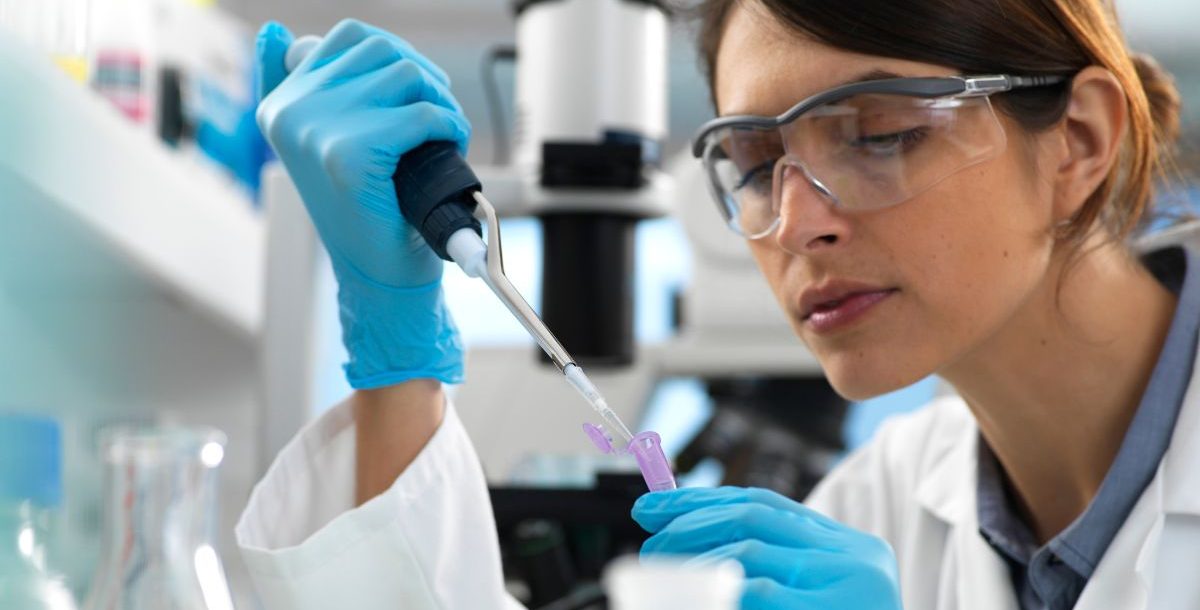When you hear the word “cancer,” one of the first questions that often comes to mind is: Is cancer genetic? It’s a fair question but is also one that’s surrounded by a lot of confusion.
Cancer and genetics
Cancer is, at its core, a disease of the genes. Our genes tell our cells how to grow, divide and die. When those instructions get scrambled – through mutations – cells can start growing uncontrollably, which is what we call cancer.
But here’s the key distinction: not all genetic mutations are inherited. Some are acquired over time due to environmental exposures (like UV rays or smoking), lifestyle factors or even random errors during cell division. While all cancers involve genetic changes, not all cancers are inherited.
However, your risk for certain cancers can increase depending on whether you inherit specific genes or gene mutations. The BRCA gene mutation is probably the most recognizable.
If you’re concerned that you might have a genetic predisposition that increases your cancer risk, make an appointment with your primary care provider to discuss your genetic testing options.
Relationship between cancer and genetics
Myth: If no one in my family has had cancer, I’m safe
Truth: Most cancers are not inherited. In fact, only about 5 to 12 percent of cancers are linked to inherited gene mutations. That means even if no one in your family has had cancer, you could still develop it due to environmental or lifestyle factors – or simply chance.
Myth: If someone in my family had cancer, I’ll definitely get it as well
Truth: Having a family history of cancer may increase your risk, but it doesn’t guarantee you’ll get it.
For example, mutations in genes like BRCA1 and BRCA2 can raise the risk of breast and ovarian cancer, but not everyone with these mutations develops cancer. Your overall risk depends on many factors, including lifestyle, environment and regular screenings.
Myth: Cancer is contagious
Truth: Cancer is not contagious. You can’t “catch” cancer from someone else. The only rare exception is through organ or tissue transplants from a donor who had cancer, but even then, the risk is extremely low.
Myth: Stress or sugar causes cancer
Truth: There’s no direct evidence that stress or sugar causes cancer. While chronic stress can affect your overall health, and a high-sugar diet may lead to obesity (which is a known cancer risk factor), neither stress nor sugar directly causes cancer.
Myth: If I have a cancer gene, I’ll definitely get cancer
Truth: Having a mutation in a cancer-related gene increases your risk, but it’s not a guarantee. Many people with inherited mutations never develop cancer.
That’s why genetic counseling and testing are so important – they help you understand your personal risk and guide decisions about screening and prevention.
Is cancer genetic?
Yes – and no. All cancers involve genetic mutations, but only a small percentage are due to inherited mutations. Most result from a mix of environmental exposures, lifestyle choices and random cellular changes.
Understanding this helps us focus on what we can control: regular screenings, healthy habits and staying informed. If you have a strong family history of cancer, talk to your primary care provider or a genetic counselor about whether testing is right for you.
How we can help
Misinformation about cancer can lead to unnecessary fear or missed opportunities for prevention. Separating myth from fact allows you to make informed, confident decisions about your health.
If you’re curious about your own risk or want to learn more about genetic testing, make an appointment with your primary care provider. They can discuss your risk factors, family history, genetic testing options and more with you to ensure your personalized care is at the forefront.
Learn about the cancer care and oncology services we offer at Bon Secours.





